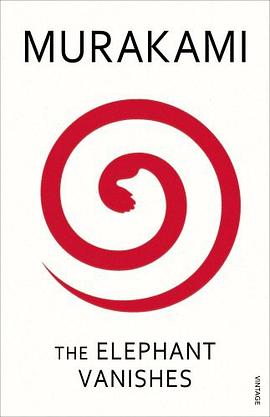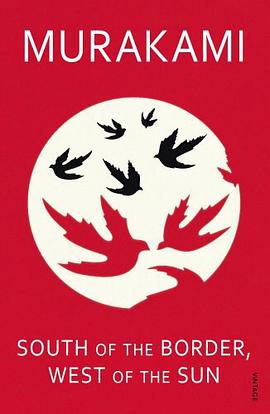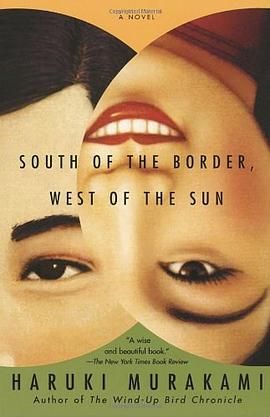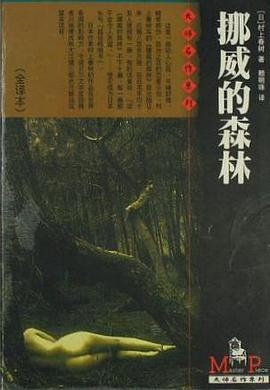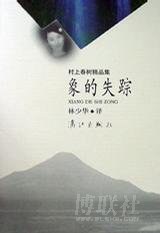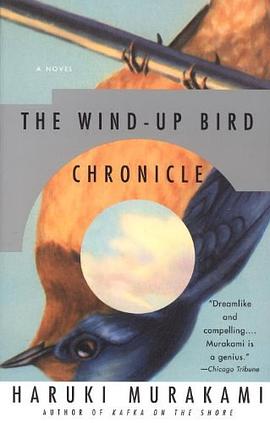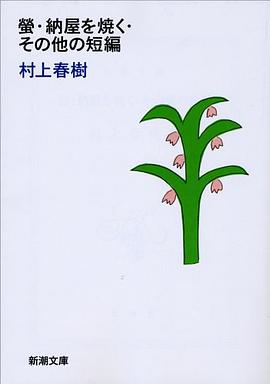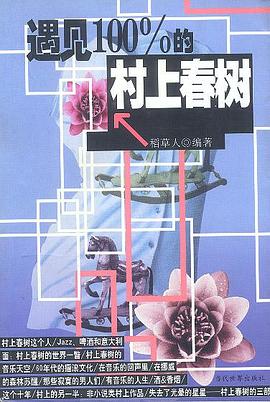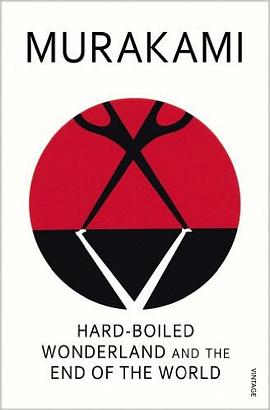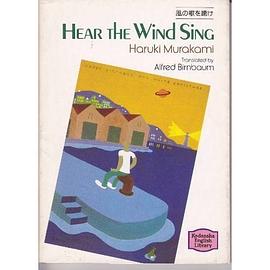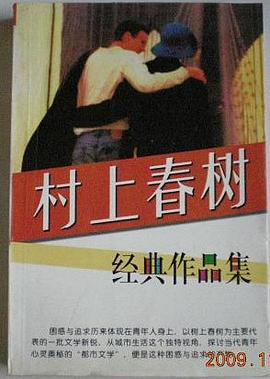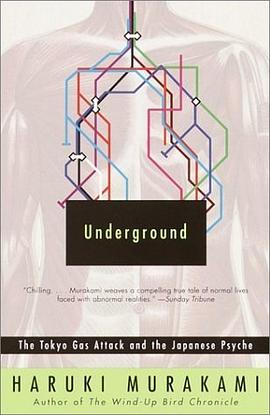

具体描述
村上春树(1949-),日本著名作家。京都府人。毕业于早稻田大学文学部。1979年以处女作《且听风吟》获群像信任文学奖。主要著作有《挪威的森林》、《世界尽头与冷酷仙境》、《舞!舞!舞》、《奇鸟行状录》、《海边的卡夫卡》、《天黑以后》等。作品被译介至三十多个国家和地区,在世界各地深具影响。
在线阅读本书
Book Description
From Haruki Murakami, internationally acclaimed author of The Wind-Up Bird Chronicle and Norwegian Wood, a work of literary journalism that is as fascinating as it is necessary, as provocative as it is profound.
In March of 1995, agents of a Japanese religious cult attacked the Tokyo subway system with sarin, a gas twenty-six times as deadly as cyanide. Attempting to discover why, Murakami conducted hundreds of interviews with the people involved, from the survivors to the perpetrators to the relatives of those who died, and Underground is their story in their own voices. Concerned with the fundamental issues that led to the attack as well as these personal accounts, Underground is a document of what happened in Tokyo as well as a warning of what could happen anywhere. This is an enthralling and unique work of nonfiction that is timely and vital and as wonderfully executed as Murakami’s brilliant novels.
From Publishers Weekly
On March 20, 1995, followers of the religious cult Aum Shinrikyo unleashed lethal sarin gas into cars of the Tokyo subway system. Many died, many more were injured. This is acclaimed Japanese novelist Murakami's (The Wind-Up Bird Chronicle, etc.) nonfiction account of this episode. It is riveting. What he mostly does here, however, is listen to and record, in separate sections, the words of both victims, people who "just happened to be gassed on the way to work," and attackers. The victims are ordinary people bankers, businessmen, office workers, subway workers who reflect upon what happened to them, how they reacted at the time and how they have lived since. Some continue to suffer great physical disabilities, nearly all still suffer great psychic trauma. There is a Rashomon-like quality to some of the tales, as victims recount the same episodes in slightly different variations. Cumulatively, their tales fascinate, as small details weave together to create a complex narrative. The attackers are of less interest, for what they say is often similar, and most remain, or at least do not regret having been, members of Aum. As with the work of Studs Terkel, which Murakami acknowledges is a model for this present work, the author's voice, outside of a few prefatory comments, is seldom heard. He offers no grand explanation, no existential answer to what happened, and the book is better for it. This is, then, a compelling tale of how capriciously and easily tragedy can destroy the ordinary, and how we try to make sense of it all. (May 1)Forecast: Publication coincides with the release of a new novel by Murakami (Sputnik Sweetheart, Forecasts, Mar. 19), and several national magazines, including Newsweek and GQ, will be featuring this fine writer. This attention should help Murakami's growing literary reputation.
From Library Journal
The deadly Tokyo subway poison gas attack, perpetrated by members of the Aum Shinrikyo cult on March 20, 1995, was the fulfillment of every urban straphanger's nightmare. Through interviews with several dozen survivors and former members of Aum, novelist Murakami (The Wind-Up Bird Chronicle) presents an utterly compelling work of reportage that lays bare the soul of contemporary Japan in all its contradictions. The sarin attack exposed Tokyo authorities' total lack of preparation to cope with such fiendish urban terrorism. More interesting, however, is the variety of reactions among the survivors, a cross-section of Japanese citizens. Their individual voices remind us of the great diversity within what is too often viewed from afar as a homogeneous society. What binds most of them is their curious lack of anger at Aum. Chilling, too, is the realization that so many Aum members were intelligent, well-educated persons who tried to fill voids in their lives by following Shoko Asahara, a mad guru who promised salvation through total subordination to his will. For all public and academic libraries. Steven I. Levine, Univ. of Montana, Missoula
From Booklist
After living abroad for eight years, novelist Murakami returned to Japan intent on gaining a deeper understanding of his homeland, a mission that took on an unexpected urgency in the aftermath of the Tokyo poison-gas attack in March 1995. Inspired by a letter to the editor from a woman whose husband survived the subway attack but suffered terrible aftereffects, Murakami set out to interview as many survivors as he could find who were capable of overcoming the Japanese reluctance to complain or criticize. With great sensitivity, insight, and respect, Murakami coaxed a remarkable group of people into describing their harrowing experiences aboard the five morning rush-hour trains on which members of the Aum Shinrikyo cult released deadly sarin gas. Unlike a journalist, Murakami doesn't force these searing narratives into tidy equations of cause and effect, good and evil, but rather allows contradictions and ambiguity to stand, thus presenting unadorned the shocking truth of the diabolical and brutal manner in which ordinary lives were derailed or destroyed. The most haunting aspect of these accounts is the eerie passivity of the passengers both during and after the assault, a phenomena echoed in Murakami's courageous interviews with Aum members, frank conversations that reveal the depth of these individuals' spiritual longings and the horror of their betrayal at the hands of their corrupt and insane leader. Shaped by his fascination with alternative worlds and humanity's capacity for both compassion and abomination, Murakami's masterful and empathic chronicle vividly articulates the lessons that should be learned from this tragic foray into chaos.
Donna Seaman
Book Dimension :
length: (cm)20.3 width:(cm)13.3
用户评价
##只要是村上的书,在图书馆看到,都会毫不犹豫地借回来。 虽然同以往的文学体裁不同,村上的文字风格和林老师的“腔调”绝配。就是特别钟爱这样的感觉。 “地下”这一话题,首先联想到的是《世界尽头与冷酷仙境》中的地下世界。 在书末后序“没有标记的噩梦”中,作者也证实二...
评分 评分 评分##最近在读的村上春树的纪实小说,是奥姆真理教制造的东京地铁沙林事件,作者采访当事人受害者所写的一本小说,读起来还不错
评分 评分 评分##先说题外话,最近的几本林译村上,新出版的《地下》以及新版本的几本随笔,都让我们看到上海译文的慌张,连续四本两部书的版权给了南海,在面对咄咄逼人的南海和翻译确实在进步的施小炜,无论是着急的上海译文,还是寂寞(也许)的林少华,都做了一些有趣的举动。序言的分析诚...
评分##《地下》算是读完了,村上从听闻噩耗到下定决心,然后用一种马拉松一样的态度完成这部访谈集的经历,就像刚读完《当我跑步》时,仿佛从头认识村上的写作态度一样,对他作为作家的虔诚和慎重不能不致以敬意。 按照以前来讲,他的书我更喜欢的当然是小说,除此以外那些随笔一般...
相关图书
本站所有内容均为互联网搜索引擎提供的公开搜索信息,本站不存储任何数据与内容,任何内容与数据均与本站无关,如有需要请联系相关搜索引擎包括但不限于百度,google,bing,sogou 等
© 2025 book.qciss.net All Rights Reserved. 图书大百科 版权所有

